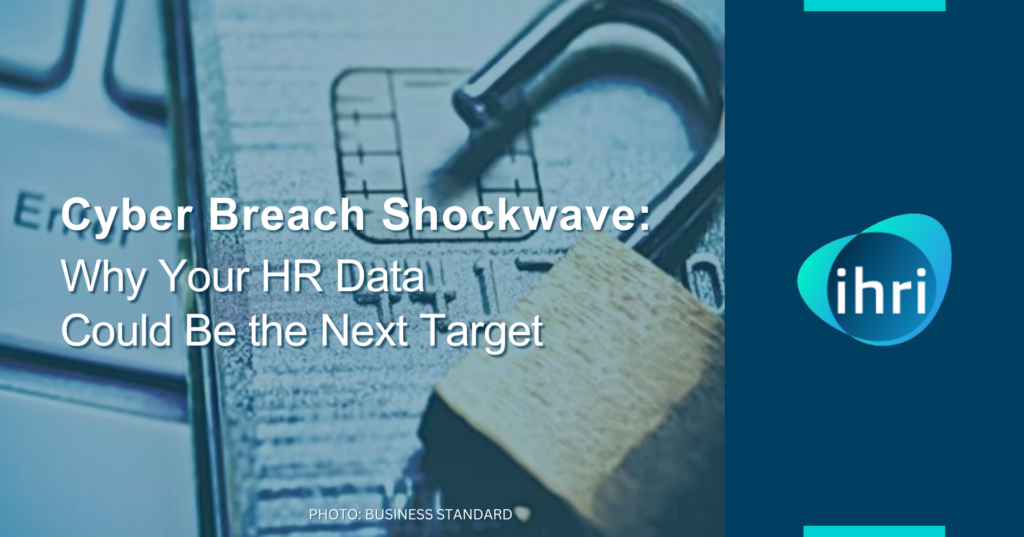In the wake of a major cybersecurity breach at a leading Philippine bank, where unauthorized access to sensitive customer data was reported, the importance of robust data privacy measures in all sectors, including Human Resources (HR), cannot be overstated. As HR professionals, we handle a wealth of personal and sensitive data, from employee records to recruitment information, making the HR department a prime target for cyberattacks. This breach serves as a crucial reminder for HR professionals to evaluate and reinforce data privacy protocols to protect both employees and organizations from similar threats.
The Growing Threat of Cybersecurity Breaches
Cyberattacks are on the rise globally, with the Philippines being no exception. According to a report by the Department of Information and Communications Technology (DICT), the Philippines saw a 200% increase in cybercrime cases in 2023, with data breaches being among the most reported incidents. In fact, the 2023 Cybersecurity Risk Survey revealed that 64% of organizations in the Philippines experienced at least one cybersecurity breach in the past 12 months. These statistics underscore the urgent need for businesses, especially those handling sensitive data, to bolster their cybersecurity defenses.
Why HR Needs to Prioritize Data Privacy
HR departments are custodians of a vast amount of personal data, including names, addresses, social security numbers, bank details, and health records. The recent bank breach highlights the catastrophic consequences that can occur when this data falls into the wrong hands. For HR professionals, the following steps are critical to safeguarding employee data:
- Implementing Robust Data Encryption: Encryption should be the standard for storing and transmitting sensitive HR data. This ensures that even if data is intercepted, it remains unreadable to unauthorized individuals.
- Conducting Regular Data Privacy Audits: Regular audits help identify potential vulnerabilities in your data management systems. An audit can reveal weak points that need strengthening, such as outdated software or inadequate access controls.
- Training Employees on Data Privacy: HR teams must ensure that all employees are aware of the importance of data privacy and cybersecurity. Regular training sessions on phishing, password management, and data handling protocols are essential to maintaining a secure workplace environment.
- Limiting Access to Sensitive Data: Not all HR personnel need access to every piece of data. Implementing role-based access controls can significantly reduce the risk of data breaches by limiting who can view or modify sensitive information.
- Utilizing Secure HR Management Systems: Invest in reputable and secure HR management systems that comply with data protection regulations. These systems often come with built-in security features like multi-factor authentication and regular security updates.
The Financial Impact of Data Breaches
The financial repercussions of a data breach can be devastating. According to IBM’s 2023 Cost of a Data Breach Report, the average cost of a data breach in the Philippines is PHP 89 million. For organizations, especially those in sectors like banking and HR, a breach can lead to significant financial losses, legal penalties, and damage to reputation.
Moreover, the implementation of the Data Privacy Act of 2012 in the Philippines mandates organizations to protect personal data, with non-compliance resulting in hefty fines and imprisonment for responsible parties. This legal framework further emphasizes the importance of robust data privacy measures within HR departments.
The Role of HR in Ensuring Data Privacy
HR professionals are not just responsible for managing human capital but also for safeguarding the personal information entrusted to them by employees. In light of the recent cybersecurity breach, HR leaders must take proactive steps to ensure that their data privacy measures are not only compliant with regulations but also resilient against emerging threats.
Key actions HR professionals can take include:
- Updating Data Privacy Policies: Ensure that your organization’s data privacy policies are up-to-date and align with the latest cybersecurity best practices and legal requirements.
- Collaborating with IT Departments: Work closely with IT to implement the latest security measures, such as firewalls, intrusion detection systems, and regular software updates.
- Preparing for Data Breaches: Develop a clear response plan for potential data breaches, including notification procedures, mitigation strategies, and communication plans with affected individuals.
Conclusion
The recent cybersecurity breach at a major Philippine bank serves as a stark reminder of the vulnerabilities that exist in our increasingly digital world. For HR professionals, this incident underscores the critical need to prioritize data privacy and take actionable steps to protect sensitive employee information. By implementing robust data privacy measures, HR can not only safeguard their organization against cyber threats but also build a culture of trust and security that benefits all stakeholders.
Remember: Data privacy is not just an IT issue—it’s a business imperative that requires the active involvement of every department, especially HR.
Becoming an Expert
International HR Institute provides global certification programs for modern-day HR professionals. Understand how you protect sensitive employee information and avoid cyber breaches by taking the Certified Data Protection Officer certification program.


